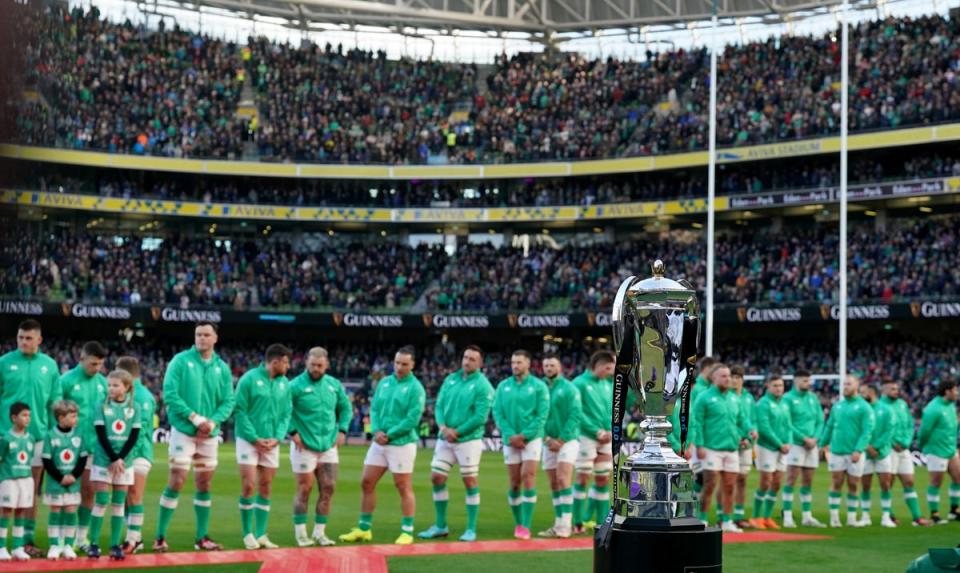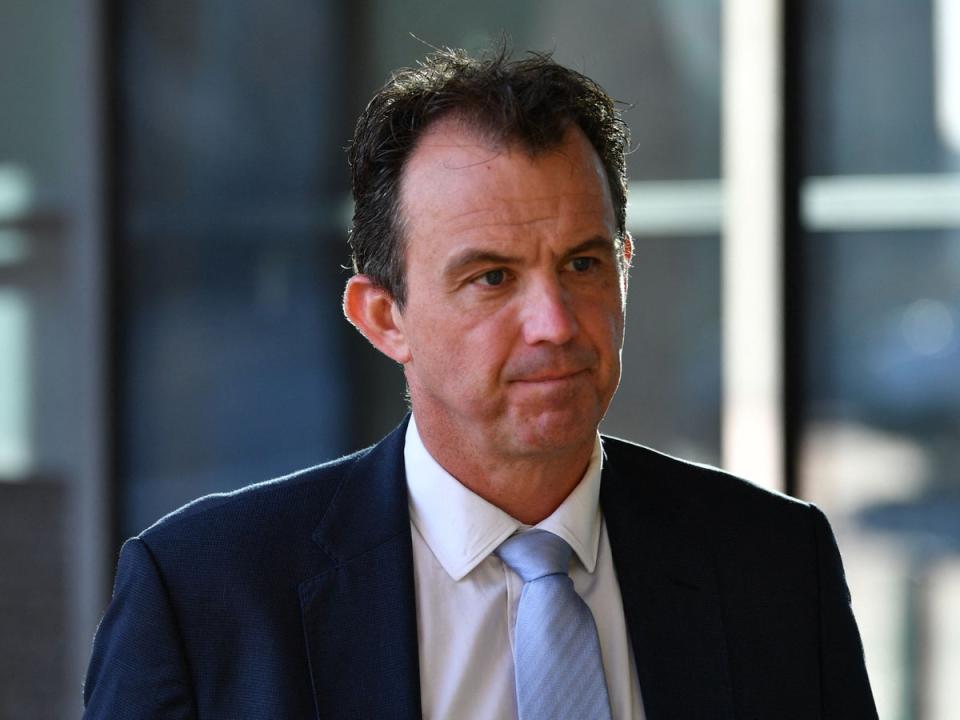Six Nations CEO reveals stance on bonus points after criticism

The Six Nations is likely to retain a system of bonus points despite criticism of a scenario where Ireland could secure this year’s championship despite having won fewer games than England.
Ireland go into their final fixture against Scotland knowing that two losing bonus points would be enough to mathematically secure the title, even if England win with four tries or more against France in Lyon.
Bonus points were introduced to the championship in 2017 and are on offer if a team scores four tries or more, or loses within a seven-point margin.
Ireland’s position of strength comes having achieved a bonus point in every game, scoring a sufficient number of tries in their three wins before the narrow loss to England at Twickenham.
Were Ireland to lose and still pip England, it would be the first time that a team has won the Six Nations with only three victories, which has led to criticism.
But Tom Harrison, the chief executive of the Six Nations, has insisted that bonus points are here to stay.
“Remember why bonus points are there — bonus points are there to promote positive rugby. It’s about fan engagement,” Harrison, speaking for the first time since taking the role after last year’s championship, said. “Also, the players know. It’s not as though we’re saying ‘you’ve played so well, we’re going to award you an extra point afterwards’.

“I’m delighted that there is some jeopardy going into the final weekend. It’s great. I’m sad for Ireland that the second Grand Slam isn’t on. That will soon fade into this weekend with the story that is likely to come through.
“There have been some brilliantly unpredictable results. That’s one of the features of the Six Nations - you genuinely don’t know what’s going to happen. We’ve still got jeopardy. No, I don’t think it will change.”
Scotland and France are also mathematically still in the title mix, but in practice would require such a significant points difference swing that it is a two-horse race.
Of course, the conversation may well be moot if Ireland beat Gregor Townsend’s side in the middle fixture of “Super Saturday”.
This year’s championship has again been chronicled by the Netflix cameras, with a second series of “Six Nations: Full Contact” due to air next year.
Harrison, who previously worked at the England and Wales Cricket Board (ECB), suggested that feedback has been positive on the documentary, and suggested that he would also be interested in working with potential partners on a series following the women’s competition.
“Full Contact has been brilliant for us,” Harrison explained. “It’s a really hard project because you’re asking for access into the most sacrosanct areas of the game.
“Obviously that insight is more about bringing the characters through than it is about the storylines of the game because we all know what happened. I can tell you that the impact has been fairly dramatic in terms of getting conversations happening through family living rooms and people talking around the water cooler at work - not just talking about what happened at the weekend, but now we know a little bit more about the characters that have been brought though the Netflix series.

“We’re excited about season two. We will see what happens. These are supremely professional athletes in the men’s and women’s game, and yet when you get them out of that rugby environment, they are just extremely grounded people that talk very authentically about what it’s like to be a top-class rugby player, an elite professional. and at the same time doing the washing up at home and dropping the kids off at school and all that kind of stuff.
“It’s just a very authentic and real way that is very true to rugby’s values. I think it’s got a massive role to play and we will do everything that we can to bring that through the women’s game whether that’s through Netflix or through other avenues, there’s definitely a richness there to be told.”

